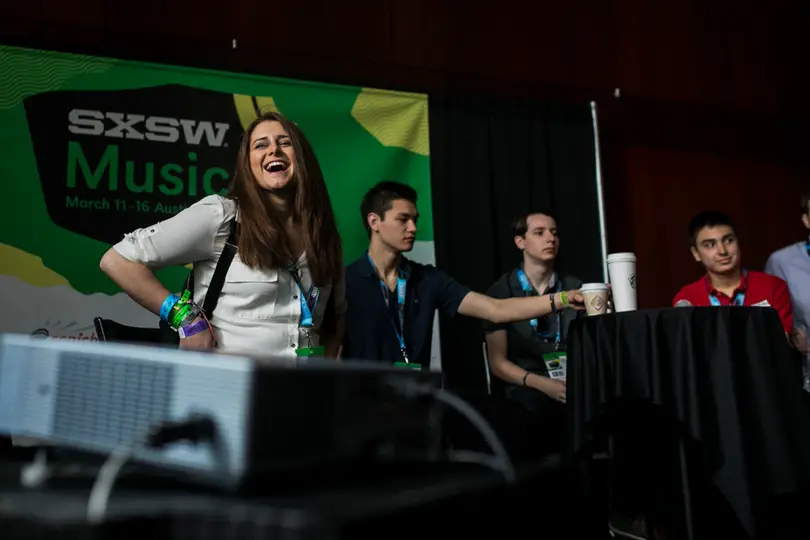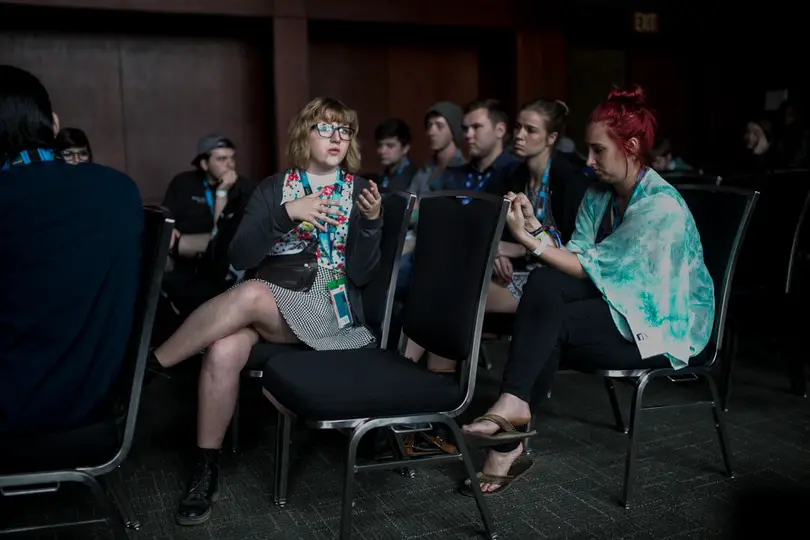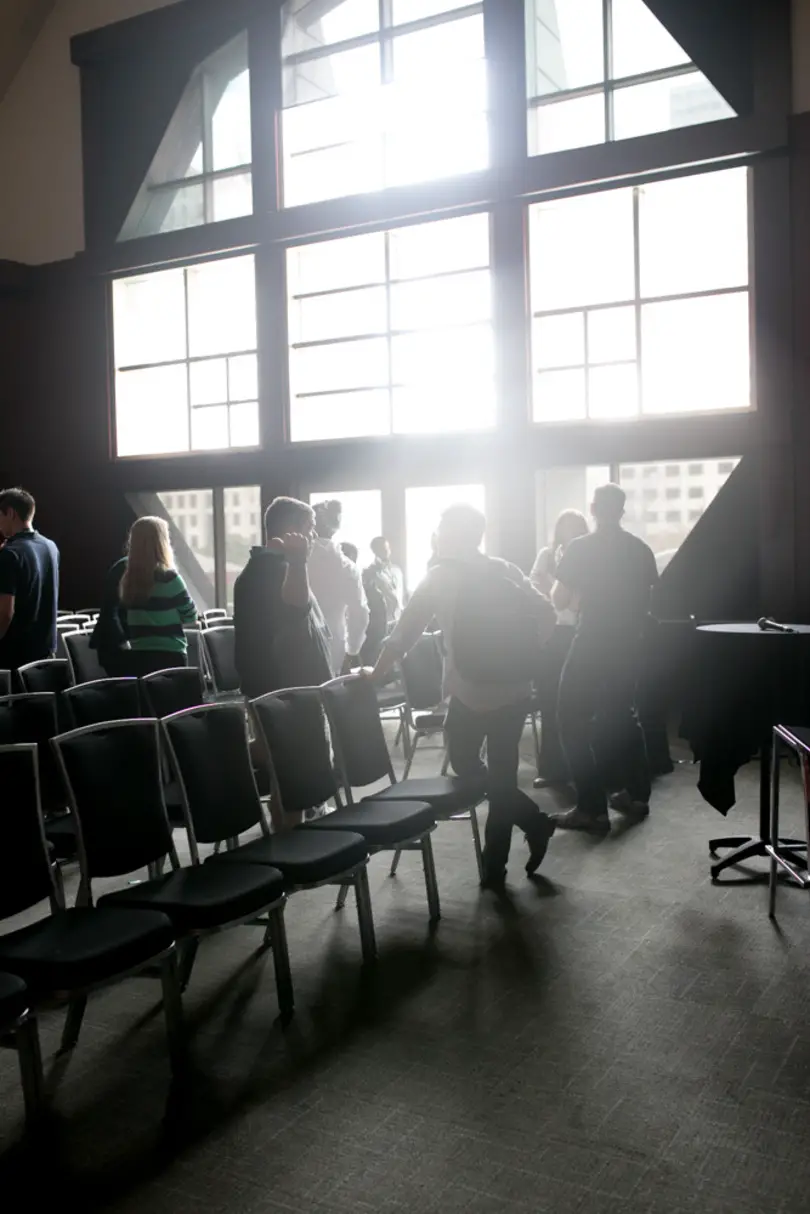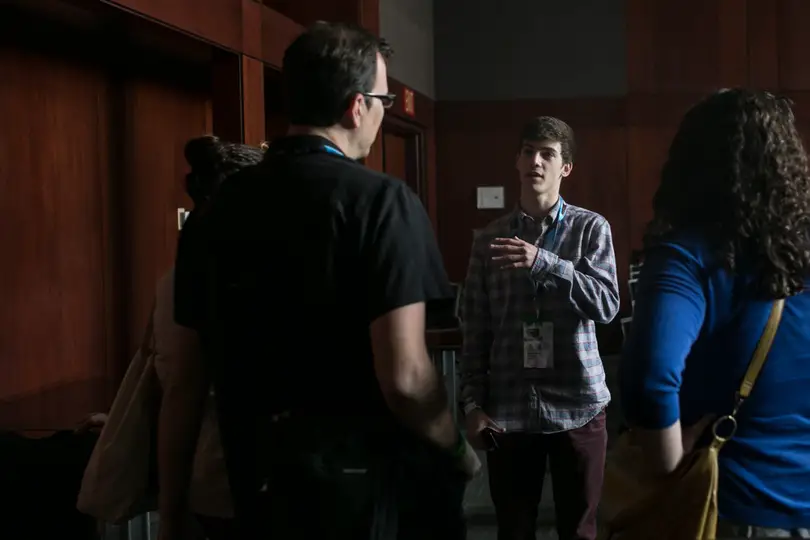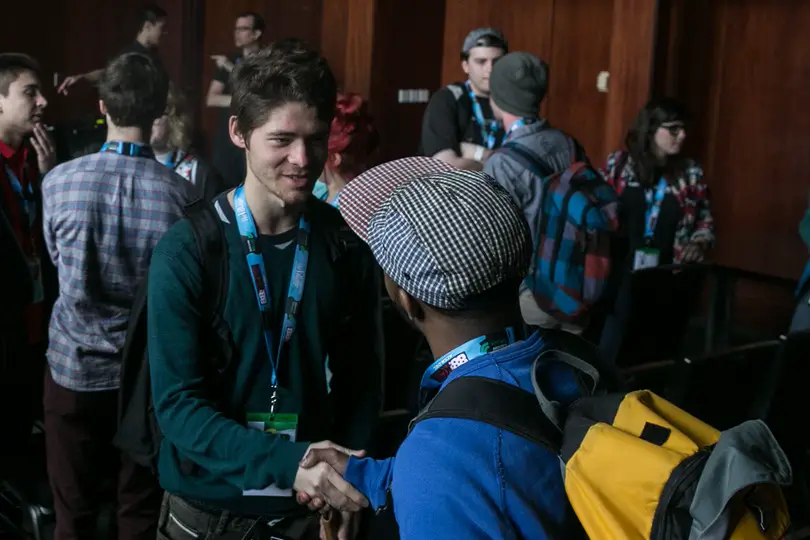University Union holds college buyers meet up to discuss logistics of securing performers
AUSTIN, TEXAS – For college booking organizations like University Union, holding a concert isn’t just about picking an artist. It’s a complex process that requires students to be professional, knowledgeable and dedicated – much like a real booking agency.
“A lot of us joke around saying that UU is a six credit class with the amount of work that’s done, time we spend in the office, and the behind-the-scenes things that nobody sees,” said Austin Thomas, a MayFest director. “…It takes a lot to push the event, to sell the tickets, because surprisingly, the name doesn’t always sell the ticket.”
But where college booking organizations and professional agencies differ is their relationship to their audience. While agencies can focus solely on making a profit, college organizations like University Union have a constituency to represent. In most cases, they are funded entirely by student fees.
College booking organizations from around the country converged at a College Buyers and Radio Peer meet up at the South by Southwest Interactive, Film and Music Festival on Friday.
At the meet up, which was held by UU’s executive board, students from many different colleges discussed how their organizations run, the issue of bringing diverse artists and communicating with artists’ agencies. The meet up was a precursor to another panel held later that day, titled “Back 2 School Special: Truth Behind College Buying.” UU’s Director of Concerts, Kelly Benini, was on a panel with industry professionals from agencies like Vector Management, Creative Artists Agency and ICM Partners.
The executive board works directly with artists and also coordinates research and marketing projects. The event saw attendance from college booking organizations as far away as University of Alaska Fairbanks.
In order to get the students to the shows, college booking organizations have to gauge what students want. When UU became the official programming board of SU, Benini said the university mandated the organization conduct surveys through the Office of Institutional Research and Assessment. The survey is sent to a randomly selected, representative sample of 3,000 students from SU’s campus. Students care about who UU books, so they’re willing to take the survey, Benini said.
Before partnering with OIRA, UU used SurveyMonkey, an online survey service. Through SurveyMonkey, Benini said UU received 5,000 responses, but found that users were submitting the same responses 3 to 4 times, which warped the survey results.
“We would see them recommend their friend’s bands a ton of times and think that we needed to check them out too,” Benini said.
The marketing team also sets up laptops near concert entrances where students answer 6 questions, like which band they came for and if they knew of the band beforehand, said Avery Landau, UU’s research director.
UU has also started holding focus groups twice a month that ask 20 random students to evaluate past shows and what they would like to see, Landau said. However, he said social media remains a big indicator of what students want.
“In the focus groups, we like people that don’t know as much about music because they’re not as biased,” Landau said.
In UU’s last Bandersnatch survey that was sent out, Landau said 40 percent of students didn’t know of the artist they were seeing before the concert. Results like this made UU realize that students might not care only about the artist, but also about finding something to do, he said.
Part of the meet up’s discussion was centered on diversifying the performers that college booking organizations secure. Since Cold War Kids and Phantogram, both indie artists, played at Block Party in 2012, UU learned that electronic dance music and hip-hop are the strongest genres at SU. After Cold War Kids was announced, UU received widespread negative feedback from some SU students who claimed they didn’t know who the band was.
“Putting on concerts is a risk. You could sell one ticket or sell the whole thing out,” said Thomas, one of the MayFest directors.
For students, the artist that they pick also depends on the aesthetic of the event, Thomas said. For a day like MayFest and Block Party, he said students might not want a mellow artist because they want to keep the party momentum going.
“People love Frank Ocean, but at the same time, they’ll say ‘We don’t want to see Frank Ocean because he’ll just sing to us,’” Thomas said. “They want to see 2 Chainz because he’s silly, he’s goofy and he’ll keep up the energy of the day.”
Though hip-hop and EDM are popular right now, students should still try to fit alternative acts on the bill, said Bryan Vastano, an agent with the Agency Group, which represents artists like Macklemore & Ryan Lewis, the Black Keys and Muse. He said an alternative show can be successful if college booking organizations pair the genre with something that works and if they can assert “the vibe” of the show to the audience.
But at the end of the day, there are always going to be critics, Vastano said. The best way for college booking organizations to diversify themselves is to try and reach as many people as they can, he said.
“There’s no chance that an average student understands what goes into the college booking business,” Vastano said. “Everything from ‘How are you advertising it, how are you marketing it, what kind of security personnel do you need, do you need a parking permit, to where’s the bus going to park?’ – These are all things they have to worry about.”
Getting involved in a college booking organization is an experience that can set students up for the real world, Vastano said, adding that he was involved with his college’s booking organization. He said they get real-world exposure through the process of promoting an event, talking to the agents and, ultimately, submitting an offer.
Said Vastano: “Students often just see the finished product, but it’s not just a show.”
Published on March 15, 2014 at 5:39 pm
Contact Annie: [email protected]

